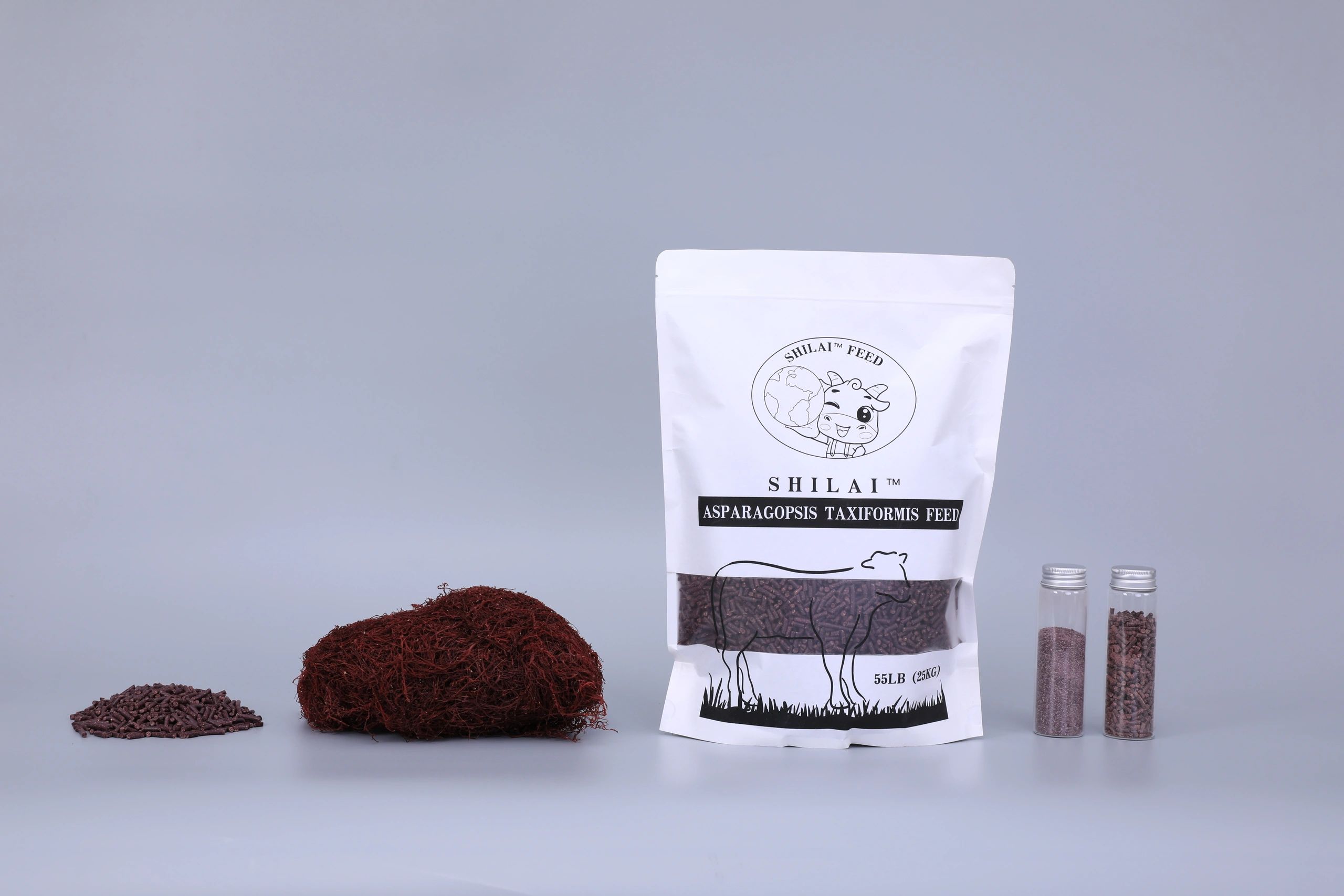Global farming activities are responsible for a large share of greenhouse gas outputs, driven mainly by animal production.
Due to its much greater warming potential relative to carbon dioxide, methane emissions are a high-priority target for mitigation.
A red seaweed called Asparagopsis taxiformis has surfaced as a potential game-changing tool to lower methane produced by grazing animals.
By supplying a molecule that suppresses rumen methanogenesis, the seaweed reduces livestock methane output.
Integrating Asparagopsis taxiformis into livestock feed has delivered encouraging trial data that point toward meaningful reductions in livestock methane.
- Furthermore, Asparagopsis taxiformis delivers a range of complementary benefits beyond methane mitigation.
- Improved feed conversion and vitality
- Potential to create a sustainable and circular economy in the agricultural sector
Although additional studies and scale-up work are required, Asparagopsis taxiformis holds strong potential as a durable means to cut livestock emissions.
Realizing the Opportunity of Asparagopsis taxiformis Powder in Animal Nutrition
Powdered Asparagopsis taxiformis offers a convenient avenue to integrate its methane-cutting properties into commercial feeds.
This marine plant contains bioactive and nutritional traits that can enhance livestock performance and productivity.
Adding A. taxiformis powder to formulations has produced methane reductions in experiments and may enrich feeds with vital micronutrients.
Sustained R&D is needed to finalize dosage regimes, processing protocols, and long-term performance and safety evidence.
The Role of Asparagopsis taxiformis in Shaping Sustainable Animal Farming

The species is increasingly seen as an intervention to lessen the environmental footprint of conventional livestock production.
Integrating the algae into feeds may allow producers to substantially reduce on-farm methane emissions and environmental impacts.
Evidence shows Asparagopsis can have positive impacts on animal health and productivity alongside emissions reductions.
Large-scale implementation and chronic impact assessment remain to be proven, yet preliminary results are highly encouraging.
Reducing Enteric Methane by Adding Asparagopsis to Feed

Scientists identify Asparagopsis as a credible method to reduce methane generation within the rumen of ruminants.
Compounds in Asparagopsis act on rumen microorganisms to suppress methanogenesis and lower methane output.
- Controlled research has shown notable methane declines in animals fed Asparagopsis in trial settings.
- Using the seaweed in feed formulations is a sustainable pathway to cut enteric methane emissions.
- There is growing industry momentum toward trialing Asparagopsis as part of feed strategies.
Asparagopsis: Seaweed Fueling Sustainable Change in Animal Agriculture
Asparagopsis taxiformis represents a marine solution that could help transform how methane is managed in livestock systems.
- Feeding trials with Asparagopsis demonstrated substantial methane declines, supporting its environmental promise.
- This seaweed breakthrough may foster a new balance between productive farming and reduced ecological impact.
As climate strategies evolve, Asparagopsis emerges as a distinctive, implementable solution for cutting livestock methane.
Optimizing Methane-Cut Feed with Asparagopsis taxiformis
Scientific teams are investigating best-practice processing and dosing to improve the performance of A. taxiformis in feeds.
The Science Behind Asparagopsis taxiformis's Methane-Lowering Effects
The scientific explanation centers on the seaweed’s bioactives inhibiting methanogenic archaea and thereby lowering methane output.
Researchers point to bromoform as a primary bioactive in Asparagopsis that suppresses methanogens, with continued evaluation of long-term impacts.
Incorporating Asparagopsis into Feed Recipes to Advance Sustainable Production
Its dual role as a nutrient source and methane inhibitor supports its use as a component in sustainable feed blends.
Asparagopsis integration may improve nutrient density, digestive efficiency, and deliver ancillary antimicrobial or immunomodulatory effects.
A Sustainable Food System Enabled by Asparagopsis taxiformis
Asparagopsis taxiformis represents an emerging, nature-based intervention to lower agricultural emissions and support sustainable food systems.
- In addition, the seaweed contributes essential nutrients and beneficial compounds to diets.
- Researchers and industry are collaboratively exploring how Asparagopsis can be used across food and aquaculture sectors.
Mainstreaming Asparagopsis use has the potential to achieve measurable reductions in the environmental effects of livestock agriculture.
How Asparagopsis Feed Additives Can Improve Animal Health and Performance
The seaweed presents a promising feed additive option with potential co-benefits for emissions and animal performance.
Trial data suggests Asparagopsis can enhance nutrient assimilation and feed conversion, contributing to better weight performance.
Observed functional properties include antioxidant and immune-supportive actions that could protect animal health.

Growing market and regulatory interest in emissions reduction underscores the potential role for Asparagopsis as development continues.
Asparagopsis Feed Strategies: Moving Toward a Carbon-Neutral Future
The industry’s need to reduce its environmental impact makes Asparagopsis a relevant intervention to cut methane from ruminants.
- Scientists explain the effect as the algae’s compounds disrupting the microbial processes responsible for methane production in the rumen.
- Research trials have repeatedly demonstrated meaningful methane reductions linked to Asparagopsis dietary inclusion.
The strategy presents both a sustainable feed alternative and a potential lever to transform agricultural emissions trajectories.